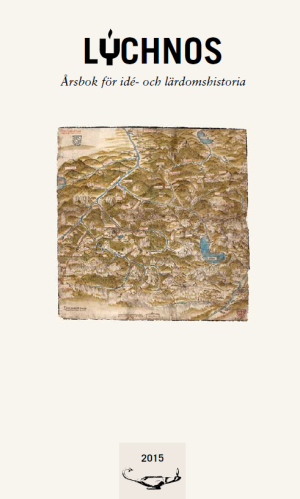Back to Hegel!
Georg Lukács, dialectics, and Hegelian Marxism
Keywords:
Georg Lukács, Hegelian Marxism, History and class consciousness, The young Hegel, dialectics, Western MarxismAbstract
Georg Lukacs’ History and class consciousness, which appeared in 1923, is the founding text of Hegelian Marxism. With the aim to identify, analyze and contextualize Lukács’ specific form of Marxism and his uses of Hegel’s philosophy, this article focuses primarily on History and class consciousness, but it also draws attention to Lukács’ pre-Marxist texts as well as his later development. Lukács’ early work, which primarily deals with aesthetic issues, was marked by a romantic anti-capitalist stance and a non-politically formulated dream of another world. After he had become a Marxist and joined the Communist Party in 1918, Lukács’ uses of Hegel became more political. As the crucial element in Marxism he stressed the dialectical method, which was invented by Hegel and developed further by Marx. Additionally, in History and class consciousness, the proletariat occupies the same position as the world spirit plays in Hegel’s Phenomenology: a substance that is also a subject, but in order to fulfill its highest destiny and act as a revolutionary subject the proletariat must first become conscious. When History and class consciousness was published it became subject to harsh criticism from official Soviet communist thinkers. It was only then, it is argued here, that Lukács became a thoroughly Marxist-Leninist philosopher. In his later works Lukács hardly deviates from the official Marxist-Leninist line, although he continued to emphasize the Hegelian element in Marxism. In The young Hegel, a work that was written in the 1930s but not published until after World War II, Lukács made a historical materialist interpretation of the young Hegel’s philosophy. Here and in his other late works, Lukács argues that Hegel essentially was a rational thinker who forcefully turned against the irrationalism of the romantics. Lukács emphasizes that we today have to criticize capitalism and fascism in a similar manner. It is, ultimately, necessary to go back to Hegel to be able to challenge capitalism, to revitalize Marxism and to emancipate mankind.
Downloads
Published
Issue
Section
License
This work is licensed under a Creative Commons Attribution 4.0 International License. The copyright for the work published in Lychnos remains with the authors.


